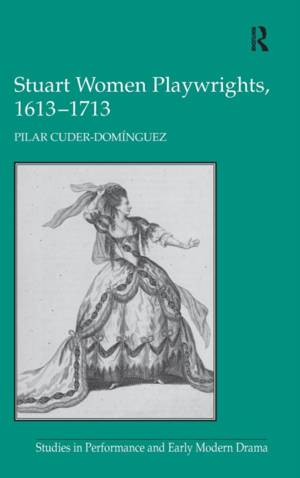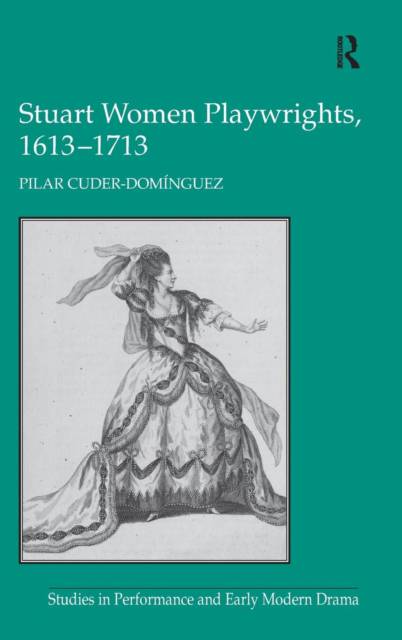
Je cadeautjes zeker op tijd in huis hebben voor de feestdagen? Kom langs in onze winkels en vind het perfecte geschenk!
- Afhalen na 1 uur in een winkel met voorraad
- Gratis thuislevering in België vanaf € 30
- Ruim aanbod met 7 miljoen producten
Je cadeautjes zeker op tijd in huis hebben voor de feestdagen? Kom langs in onze winkels en vind het perfecte geschenk!
- Afhalen na 1 uur in een winkel met voorraad
- Gratis thuislevering in België vanaf € 30
- Ruim aanbod met 7 miljoen producten
Zoeken
Omschrijving
In the field of seventeenth-century English drama, women participated not only as spectators or readers, but more and more as patronesses, as playwrights, and later on as actresses and even as managers. This study examines English women writers' tragedies and tragicomedies in the seventeenth century, specifically between 1613 and 1713, which represent the publication dates of the first original tragedy (Elizabeth Cary's The Tragedy of Mariam) and the last one (Anne Finch's Aristomenes) written by a Stuart woman playwright. Through this one-hundred year period, major changes in dramatic form and ideology are traced in women's tragedies and tragicomedies. In examining the whole of the century from a gender perspective, this project breaks away from conventional approaches to the subject, which tend to establish an unbridgeable gap between the early Stuart period and the Restoration. All in all, this study represents a major overhaul of current theories of the evolution of English drama as well as offering an unprecedented reconstruction of the genealogy of seventeenth-century English women playwrights.
Specificaties
Betrokkenen
- Auteur(s):
- Uitgeverij:
Inhoud
- Aantal bladzijden:
- 158
- Taal:
- Engels
- Reeks:
Eigenschappen
- Productcode (EAN):
- 9780754667131
- Verschijningsdatum:
- 23/12/2010
- Uitvoering:
- Hardcover
- Formaat:
- Genaaid
- Afmetingen:
- 156 mm x 234 mm
- Gewicht:
- 403 g

Alleen bij Standaard Boekhandel
+ 610 punten op je klantenkaart van Standaard Boekhandel
Beoordelingen
We publiceren alleen reviews die voldoen aan de voorwaarden voor reviews. Bekijk onze voorwaarden voor reviews.









